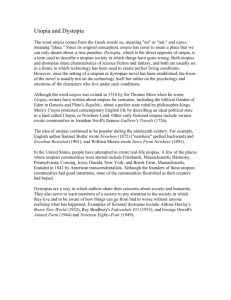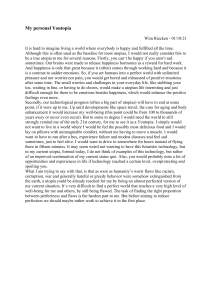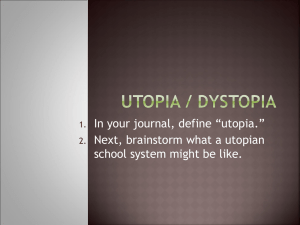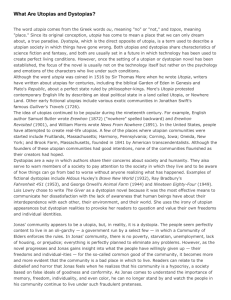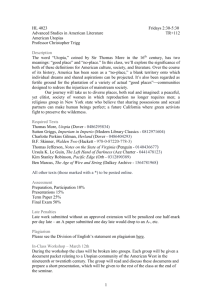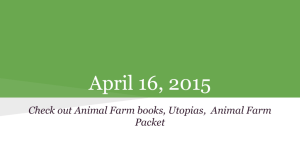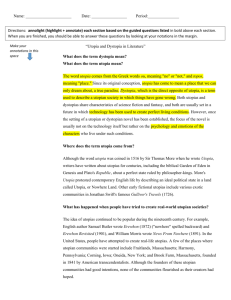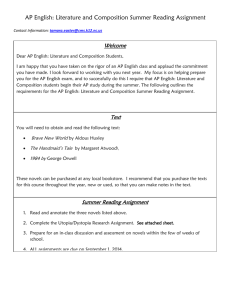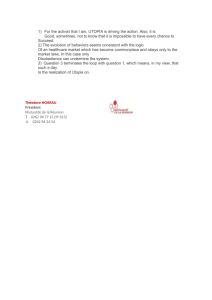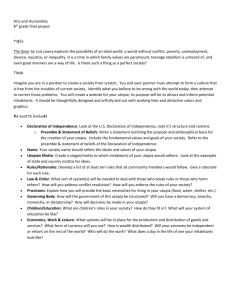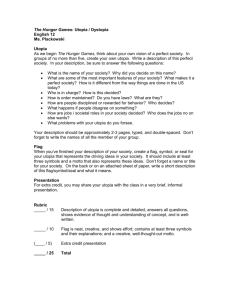Thomas More Utopia, 1516, excerpts
advertisement
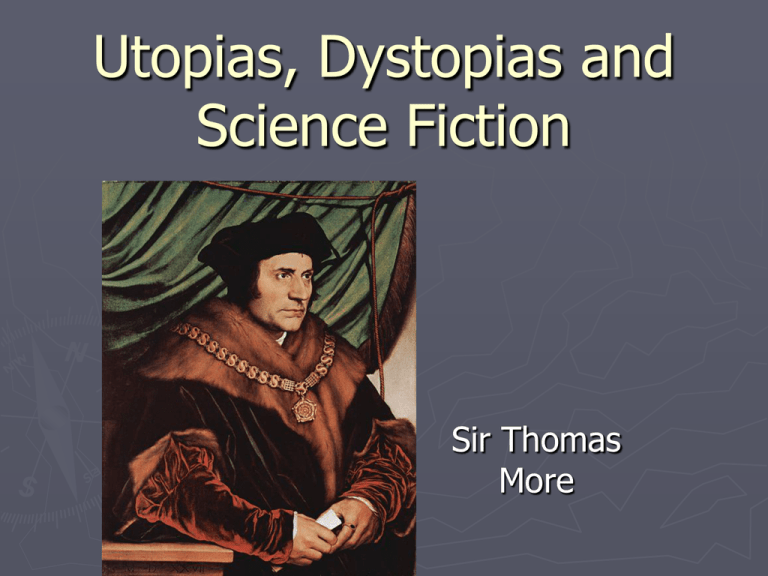
Utopias, Dystopias and Science Fiction Sir Thomas More Utopia ► “No Place” ► Model of the good society ► Unrealistic daydream Eutopia ► “The Good Place” ► Ambiguity of terms ► Dream place Utopias ► Typically a visitor arrives ► Geographical isolation ► Temporal isolation ► Wish to appear realistic and realizable ► Problem today: the world has shrunk Utopian or Dystopian Satire ► Ridicule ► No ► Sir solution Thomas More, 1478-1535 Satire ► Gulliver’s Travels ► Erewhon ► Jonathan Swift, 1667-1745 Aspects of Utopias ► Socialism ► Democracy – dictatorship? ► Religion ► War – power ► Technology ► Work – leisure Works ► Thomas More – Utopia, 1516 ► Francis Bacon – New Atlantis, 1605 ► Jonathan Swift – Gulliver’s Travels, 1726 ► Mary Shelley – Frankenstein, 1818 ► Samuel Butler – Erewhon, 1872 ► William Morris – News from Nowhere, 1890 ► H.G.Wells – The Time Machine, 1895 ► The War of the Worlds, 1898 Utopia, Thomas More What are the main criticisms of the existing British society? a) Courtiers b) The justice system and punishment in England c) The noblemen and their exploitation d) The Enclosure movement e) The King and his ambitions f) Avarice and Greed Questions Utopia, Thomas More ► 1) Give a brief outline of the basic characteristics of Utopia ► 2) What is the role of men, women, and children? ► 3) Which of these characteristics appeal to you and which do not? Why / why not?
